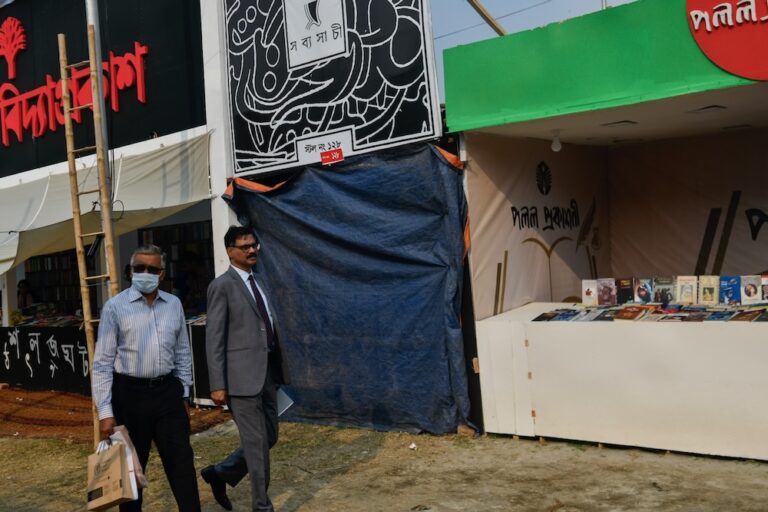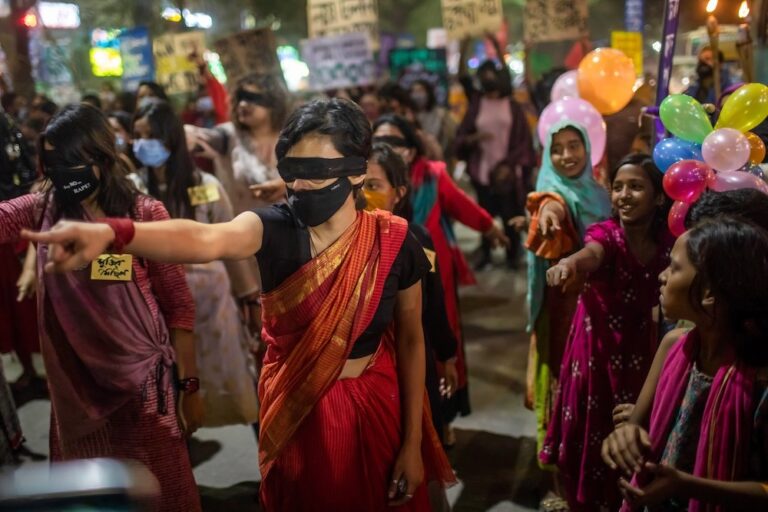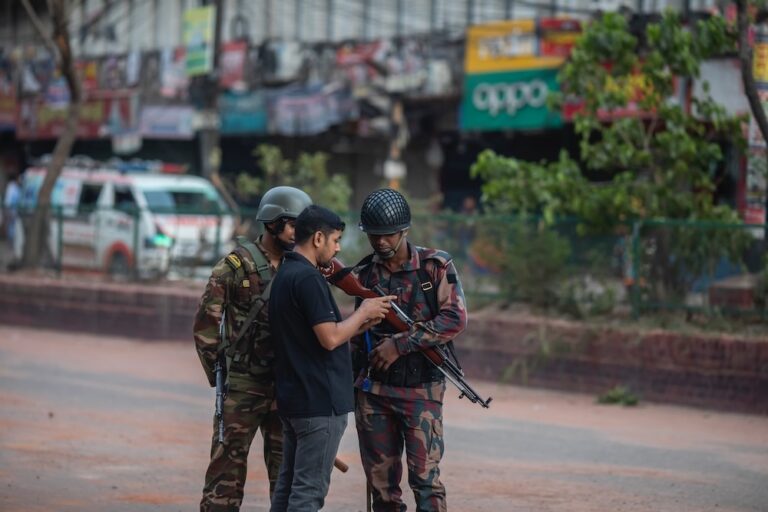During the month of May alone, at least 16 journalists and bloggers were charged under the 2018 Digital Security Act. They were charged for posting information and criticized the government's COVID-19 response.
This statement was originally published on rsf.org on 3 June 2020.
Five Bangladeshi and international organizations that defend the freedom to inform have written to Bangladeshi Prime Minister Sheikh Hasina asking her to take concrete action to guarantee journalistic freedom in the face of an alarming surge in physical and judicial attacks on reporters and cartoonists in connection with the Covid-19 crisis.
Prime Minister Sheikh Hasina
Government of the People’s Republic of Bangladesh
Prime Minister’s Office
Old Sangsad Bhaban Tejgaon
Dhaka-1215, Bangladesh
Dhaka, London and Paris
3 June 2020
Dear Prime Minister,
“The government firmly believes in freedom of press.” Those are your words. You uttered them on 19 November 2018, when funding was awarded to an organization that protects journalists in difficulty. You added: “No one can say we ever gagged anyone’s voice; we never did that, and we don’t do that either.”
It is nonetheless undeniable that the facts totally contradict these claims. Since this statement, your country has fallen five places in the World Press Freedom Index compiled by Reporters Without Borders (RSF). Bangladesh is ranked 151st out of 180 countries in the 2020 Index. And, given the disturbing number of press freedom violations in recent weeks, we fear that your country could fall even further next year.
During the month of May alone, at least 16 journalists and bloggers were charged under the 2018 Digital Security Act. They include the cartoonist Ahmed Kabir Kishore, who was arrested on 6 May by the Rapid Action Battalion, your country’s counter-terrorism agency. His only act of “terrorism” was to have published a series of cartoons of politicians entitled “Life in the Time of Corona.” He is still detained and is facing a possible life sentence.
Most of the other journalists being prosecuted under this law simply reported information that annoyed local politicians.
Since the start of the lockdown in your country, at least 13 journalists have also been the targets of violence, which in some cases caused serious injuries. This was the case with Shah Sultan Ahmed, a journalist who was badly beaten on 1 April by about 25 individuals armed with steel rods. The attack was all the more shocking for having been ordered by a local politician in retaliation for a report about the misappropriation of the contents of emergency food packages that your government had sent to help combat the effects of the pandemic.
According to RSF’s tally, six other journalists have been subjected to outbursts of similar violence for investigating cases of corruption among district officials responsible for distributing humanitarian supplies.
During the current “infodemic of misinformation,” as the United Nations has called it, Bangladeshi journalists are working at the frontline to provide your country’s citizens with reliable and independently-reported information.
It is intolerable that they are being subjected to violence and harassment in this manner. Your government has a duty to guarantee journalistic freedom and to ensure that reporters can do their job without fear of either physical or judicial reprisals.
We, five Bangladeshi and international organizations that defend press freedom, therefore urge you and your government to:
- Make sure physical attacks against reporters do not go unpunished by ensuring that the attorney general orders the investigations that are needed for the perpetrators and instigators to be arrested and tried for their actions.
- Request the dropping of abusive prosecutions of journalists, bloggers and cartoonists under the Digital Security Act.
- Reform your press freedom legislation so that it complies with the undertakings your government has given to international bodies including the UN Human Rights Council on 14 May 2018. To this end, you should amend the Digital Security Act and draft a law on protecting journalists.
We stand ready to begin a dialogue with you on achieving these goals.
Sincerely,
Terry Anderson
Executive Director
Cartoonists Rights Network International (CRNI)
Christophe Deloire
Secretary-General
Reporters Without Borders (RSF)
Dr. Syeda Aireen Jaman
Chairwoman
Forum for Freedom of Expression, Bangladesh (FExB)
Zahirul Islam Khan
Chairman
Ain O Shalish Kendra (ASK)
Patrick Lamassoure (Kak)
President
Cartooning For Peace (CFP)



